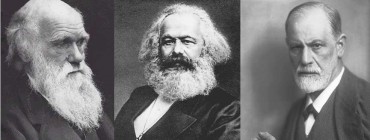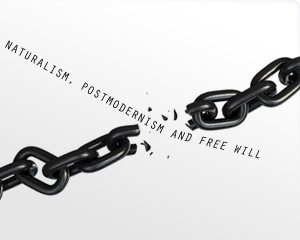
By Richard Johnston
The theory of evolution has been in the news recently in relation to a competing scientific theory known as intelligent design. Opponents of intelligent design, or ?ID? as it is sometimes referred to, contend that it is no more than creationism in a different set of clothes.
The proponents of ID say that their theory does indeed point to an intelligence (be it God or otherwise) behind creation, but contend that ID is based on science, not religion?that it is the conclusion of scientific observation, not faith.
Many scientists and educators dismiss ID, not because there is a stronger scientific argument for evolution, but because they adhere to a philosophical school of thought known as ?naturalism,? or ?scientific materialism.?
In their insightful paper ?Intelligent Design: The Scientific Alternative to Evolution,? William S. Harris and John H. Calvert point out that:
Naturalism is the doctrine that the laws of cause and effect (as in chemistry and physics) are adequate to account for all phenomena, and that the [ID] hypothesis is invalid as a matter of principle?not as a deduction from evidence. It holds that all phenomena, even consciousness, can be reduced to matter and energy and that only physical causes operate. Design, which reflects the activity of a nonphysical mind, is not permitted. It requires a belief that we just ?occur? as natural phenomena and that we are not designed or created for any purpose. By eliminating design, the philosophy of naturalism effectively eliminates supernatural explanations for any event occurring in nature. Indeed, the very function of naturalism is to eliminate the possibility of supernatural intervention from all scientific explanations.1
Professor Richard Lewontin, a Harvard geneticist and evolution proponent, states the naturalists? position clearly:
We take the side of science in spite of the patent absurdity of some of its constructs, in spite of its failure to fulfill many of its extravagant promises of health and life, in spite of the tolerance of the scientific community for just-so stories, because we have a prior commitment, a commitment to materialism. It is not that the methods and institutions of science somehow compel us to accept a material explanation of the phenomenal world, but, on the contrary, that we are forced by our [prior] adherence to material causes to create an apparatus of investigation and a set of concepts that produce material explanations, no matter how counterintuitive, no matter how mystifying to the uninitiated. Moreover, that materialism is absolute, for we cannot allow a Divine Foot in the door.2
In what can only be an attempt to further muddy the waters, some adherents of naturalism try to imply that it is not a philosophy but rather a method of investigating nature. But in this methodological naturalism, all non-material (read ?spiritual?) possibilities that could be considered are automatically (and therefore irrationally) excluded. This totally doctrinaire approach is, as John Rennie, editor of the magazine Scientific American, stated, ?a central tenet of modern science.?3
Whether one wants to quibble over whether naturalism is a method or a philosophy, the result is the same: the exclusion of any facts and research that doesn?t support what the naturalists have already presupposed. Is this science? Or does it resemble what Saint Paul referred to as the ?profane and vain babblings, and oppositions of science falsely so called?? (1 Timothy 6:20 KJV).
And the scientific establishment brooks no dissent. As explained by a popular science writer, Robert Wright, naturalism is one of the ?unwritten rules of scientific conduct? that requires adherents ?to scrupulously avoid even the faintest [ID] overtones.?4 This is further explained by biologist Scott Todd, who writes that ?even if all the data point to an intelligent designer, such an hypothesis is excluded from science because it is not naturalistic.?5
Those who break this rule are generally subject to insult and derision, loss of employment, manuscript rejection from peer-reviewed scientific journals, and are shunned by the science establishment. Donald Gould, a former editor of the magazine New Scientist, stated with some irony: ?The scientific establishment bears a grisly resemblance to the Spanish Inquisition. Either you accept the rules and attitudes and beliefs promulgated by the ?papacy? ? or face a dreadful retribution. We will not actually burn you at the stake, because that sanction, unhappily, is now no longer available under our milksop laws. But we will make damned sure that you are a dead duck in our trade.?6 Science, it seems, can be a nasty business!
The irony of all this is that it once again confirms the veracity of the Bible and fulfills another of its prophecies about the Endtime. ?Scoffers will come in the last days ? [that] willfully forget that by the Word of God the heavens were of old, and the earth standing out of water and in the water? (2 Peter 3:3,5). ?And with all unrighteous deception among those who perish, because they did not receive the love of the truth, that they might be saved. And for this reason God will send them strong delusion, that they should believe the lie? (2 Thessalonians 2:10-11).



